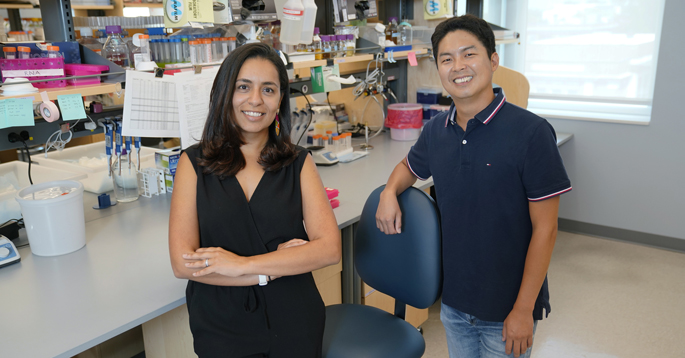
Researchers at UT Southwestern Medical Center have discovered how healthy bacteria can escape the intestine, travel to lymph nodes and cancerous tumors elsewhere in the body, and boost the effectiveness of certain immunotherapy drugs...
Read More

Researchers at UT Southwestern Medical Center have discovered how healthy bacteria can escape the intestine, travel to lymph nodes and cancerous tumors elsewhere in the body, and boost the effectiveness of certain immunotherapy drugs...
Read More
Researchers from the Girona Biomedical Research Institute (IDIBGI) and Pompeu Fabra University (UPF) in Barcelona, Spain, have identified the role of an amino acid in humans, mice and flies suffering depression. It is proline, an amino acid that is present in a wide variety of foods. The results, published in the scientific journal Cell Metabolism, also associate the consumption of a proline-rich diet with a greater tendency to develop depression.
The study was led by Dr. José Manuel Fernández-Real and Dr. Jordi Mayneris-Perxachs, from the research group on Nutrition, Eumetabolism and Health at the IDIBGI and CIBEROBN, and Dr...
Read More
A study published today in the journal Cell Host & Microbe reported that the increased presence of certain bacteria in a gut biome indicates a greater likelihood that colon polyps will become cancerous.
In his research, William DePaolo, associate professor at the University of Washington School of Medicine, tracked 40 patients who had undergone routine colonoscopies and had biopsies taken near the polyps to identify bacteria present at relatively higher levels compared with those of patients who were polyp-free. All the patients were between the ages 50 and 75, and 60% were women.
“The rising incidence of colorectal cancer is a major health concern, but little is known about the composition and role of microbiota associated with precancerous polyps,” the...
Read More
A high-fat diet disrupts the biology of the gut’s inner lining and its microbial communities — and promotes the production of a metabolite that may contribute to heart disease, according to a study published Aug. 13 in the journal Science.
The discoveries in animal models support a key role for the intestines and microbiota in the development of cardiovascular disease, said Mariana Byndloss, DVM, PhD, assistant professor of Pathology, Microbiology and Immunology at Vanderbilt University Medical Center.
The intestines, she noted, have been relatively understudied by scientists seeking to unders...
Read More
Recent Comments